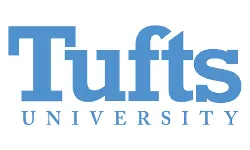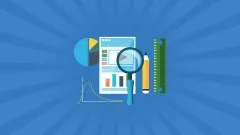
Hypothesis Testing with Python and Excel 
Gain an introduction to Hypothesis Testing with Python and Excel ▼
ADVERTISEMENT
Course Feature
![]() Cost:
Cost:
Free
![]() Provider:
Provider:
Coursera
![]() Certificate:
Certificate:
Paid Certification
![]() Language:
Language:
English
![]() Start Date:
Start Date:
6th Jun, 2023
Course Overview
❗The content presented here is sourced directly from Coursera platform. For comprehensive course details, including enrollment information, simply click on the 'Go to class' link on our website.
Updated in [March 09th, 2023]
Unlock the Exciting World of Learning! Here's What Awaits You: With this course, you will learn the fundamentals of hypothesis testing, a key procedure for understanding business and analytics. You will gain an understanding of the central limit theorem, which is essential for hypothesis testing, and learn how to use Excel and Python for calculations. You will also be able to apply your newfound skills by creating a plan for an experiment in your own workplace that uses hypothesis testing. Finally, you will be able to use the knowledge you have gained to become more competitive in today's job market.
[Applications]
Upon completion of this course, participants will be able to apply their knowledge of hypothesis testing to their own workplace. They will be able to use Excel and Python to calculate the necessary statistics for hypothesis testing, and will be able to create a plan for an experiment that uses hypothesis testing. Additionally, participants will have a better understanding of the central limit theorem and its importance in hypothesis testing.
[Career Paths]
1. Data Scientist: Data Scientists use hypothesis testing to analyze data and draw meaningful conclusions. They use a variety of tools, such as Python and Excel, to analyze data and develop models to make predictions. Data Scientists are in high demand, and the demand is expected to continue to grow as businesses become increasingly data-driven.
2. Business Analyst: Business Analysts use hypothesis testing to identify trends and patterns in data. They use their findings to make recommendations to improve business operations and performance. Business Analysts are in high demand, and the demand is expected to continue to grow as businesses become increasingly data-driven.
3. Data Engineer: Data Engineers use hypothesis testing to develop and maintain data pipelines and databases. They use a variety of tools, such as Python and Excel, to design and implement data systems. Data Engineers are in high demand, and the demand is expected to continue to grow as businesses become increasingly data-driven.
4. Machine Learning Engineer: Machine Learning Engineers use hypothesis testing to develop and deploy machine learning models. They use a variety of tools, such as Python and Excel, to develop and deploy machine learning models. Machine Learning Engineers are in high demand, and the demand is expected to continue to grow as businesses become increasingly data-driven.
[Education Paths]
1. Bachelor of Science in Data Science: Data Science is a rapidly growing field that combines mathematics, statistics, and computer science to analyze and interpret data. This degree program will provide students with the skills to develop and implement data-driven solutions to real-world problems. Students will learn to use programming languages such as Python and R, as well as statistical software such as Excel and SPSS, to analyze data and draw meaningful conclusions. As the demand for data-driven solutions continues to grow, this degree will prepare students for a wide range of career opportunities.
2. Master of Science in Business Analytics: Business Analytics is a field that focuses on using data to make informed decisions. This degree program will provide students with the skills to analyze data and develop strategies to improve business performance. Students will learn to use data mining, predictive analytics, and machine learning techniques to identify trends and develop solutions. This degree will prepare students for a variety of roles in the business world, such as data analyst, business analyst, and data scientist.
3. Master of Science in Applied Statistics: Applied Statistics is a field that focuses on the application of statistical methods to solve real-world problems. This degree program will provide students with the skills to analyze data and develop models to make predictions. Students will learn to use statistical software such as SAS and SPSS, as well as programming languages such as Python and R, to analyze data and draw meaningful conclusions. This degree will prepare students for a variety of roles in the business world, such as data analyst, statistician, and data scientist.
4. Doctor of Philosophy in Data Science: Data Science is a rapidly growing field that combines mathematics, statistics, and computer science to analyze and interpret data. This degree program will provide students with the skills to develop and implement data-driven solutions to real-world problems. Students will learn to use programming languages such as Python and R, as well as statistical software such as Excel and SPSS, to analyze data and draw meaningful conclusions. As the demand for data-driven solutions continues to grow, this degree will prepare students for a wide range of career opportunities.
Pros & Cons

Friendly course.

Smooth & easy to learn.

Well examples.

Too short.

No progression or goals.

Less material.
Course Provider

Provider Coursera's Stats at AZClass
Discussion and Reviews
0.0 (Based on 0 reviews)
Explore Similar Online Courses

Tsinghua Chinese: Start Talking with 13 Billion People

Work Online As A Web Designer

Python for Informatics: Exploring Information

Social Network Analysis

Introduction to Systematic Review and Meta-Analysis

The Analytics Edge

DCO042 - Python For Informatics

Causal Diagrams: Draw Your Assumptions Before Your Conclusions

Whole genome sequencing of bacterial genomes - tools and applications

Business Analysis Fundamentals - ECBA CCBA CBAP endorsed

Fundamentals of Business Analysis

Identify & Define the Problem with Business Analysis
 Related Categories
Related Categories
 Popular Providers
Popular Providers
Quiz
 Submitted Sucessfully
Submitted Sucessfully
1. What is the central limit theorem?
2. What is the purpose of this course?
3. What is the main focus of this course?


Start your review of Hypothesis Testing with Python and Excel